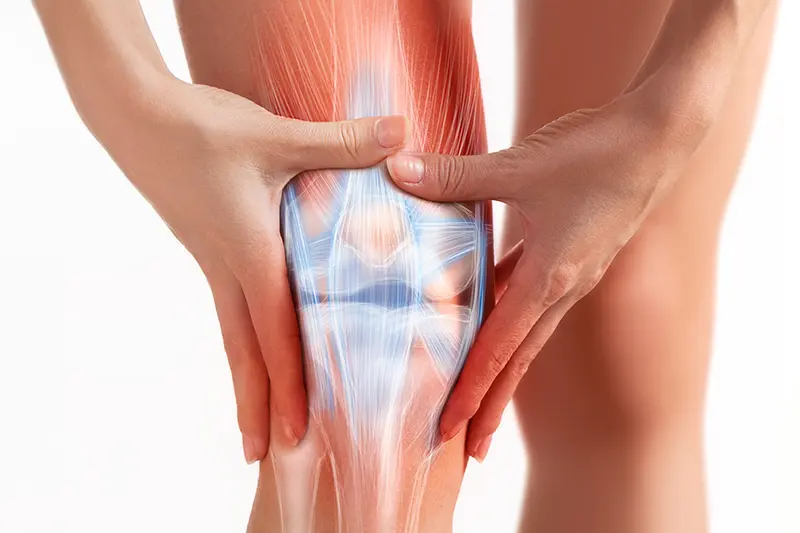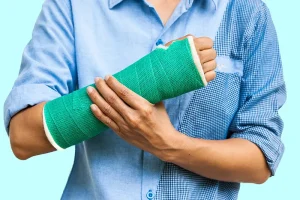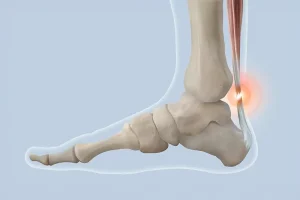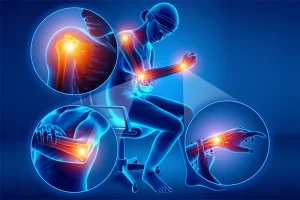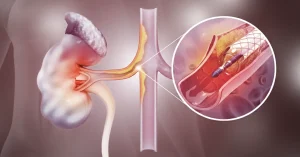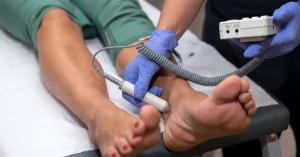Osteoarthritis is a chronic degenerative joint disease that appears when the cartilage covering the ends of bones breaks down over time. This wear causes the bones to rub directly against each other, leading to pain, stiffness, inflammation, and limited mobility.
Osteoarthritis can affect any joint, but is most common in the knees, hips, hands, and spine. Several factors influence its development and symptoms, including age, genetics, body weight, physical activity, and diet.
As we age, the body’s natural collagen production declines, which can lead to thinner cartilage. Cartilage loses its elasticity and ability to absorb shock, resulting in pain and stiffness in the joints. The VenArt team is here to help you choose the most suitable collagen for the health of your knee joints.
What Is Joint Cartilage Damage?
Increasingly, people are experiencing joint discomfort or degenerative conditions, such as osteoarthritis or cartilage defects, making it crucial to select the best collagen for your knees. Joint cartilage defect, also known as chondropathy, is a common knee problem that involves damage to the cartilage surface inside the joint. It can appear at any age, either suddenly or develop over time.
Collagen Consumption and Collagen Supplements: Secrets for Healthy Joints
If you have cartilage damage, incorporating collagen into your diet or taking supplements can help maintain joint function and protect your cartilage from further wear and tear. Collagen supplements come in various forms, such as powder, capsules, or liquid, which can make choosing the right one a challenge.
Here are some options recommended by VenArt Clinic:
It all starts with your plate! Certain vegetables contain active compounds that help regenerate cartilage and reduce joint inflammation. VenArt Clinic has published an article about vegetables that, according to new research, can quickly and effectively benefit joint health. Read the article HERE!
Types of Collagen for Your Knees
Collagen Types in the Body
There are 28 types of collagen found in the human body, but only two are essential for healthy knee joints:
- Type I Collagen – found in tendons, ligaments, and bones
- Type II Collagen – specific to cartilage
The best collagen for your knees is a product that contains both types, so it can support all the tissues within the joint.
Endogenous vs. Exogenous Collagen
- Endogenous Collagen: produced naturally by the body
- Exogenous Collagen: obtained externally through food and supplements
Sources of Exogenous Collagen
Most collagen used in supplements comes from animal sources:
- Marine collagen: best absorption and low allergy risk
- Bovine collagen: a highly effective alternative
- Porcine or poultry collagen: also used, but less common
Hydrolyzed vs. Undenatured Collagen
- Hydrolyzed Collagen: broken down into small peptides for easier absorption
- Undenatured Collagen: keeps its original structure but is harder to digest
For knee health, hydrolyzed collagen is generally considered the best option.
How Does Collagen Affect the Joints?
- Regenerates Cartilage Tissue: Collagen provides vital amino acids needed to repair and rebuild cartilage.
- Protects Against Wear and Tear: Collagen strengthens the cartilage layer, which cushions bones and prevents them from rubbing directly against each other.
- Reduces Inflammation and Pain: Supporting cartilage health helps lower inflammation, which in turn can ease joint pain.
VenArt Clinic advises you to avoid collagen supplements that contain artificial additives, sweeteners, or colorings. While these may make the supplement taste better, they do not support your health. Schedule a consultation today for a more personalized plan to help improve your health.

